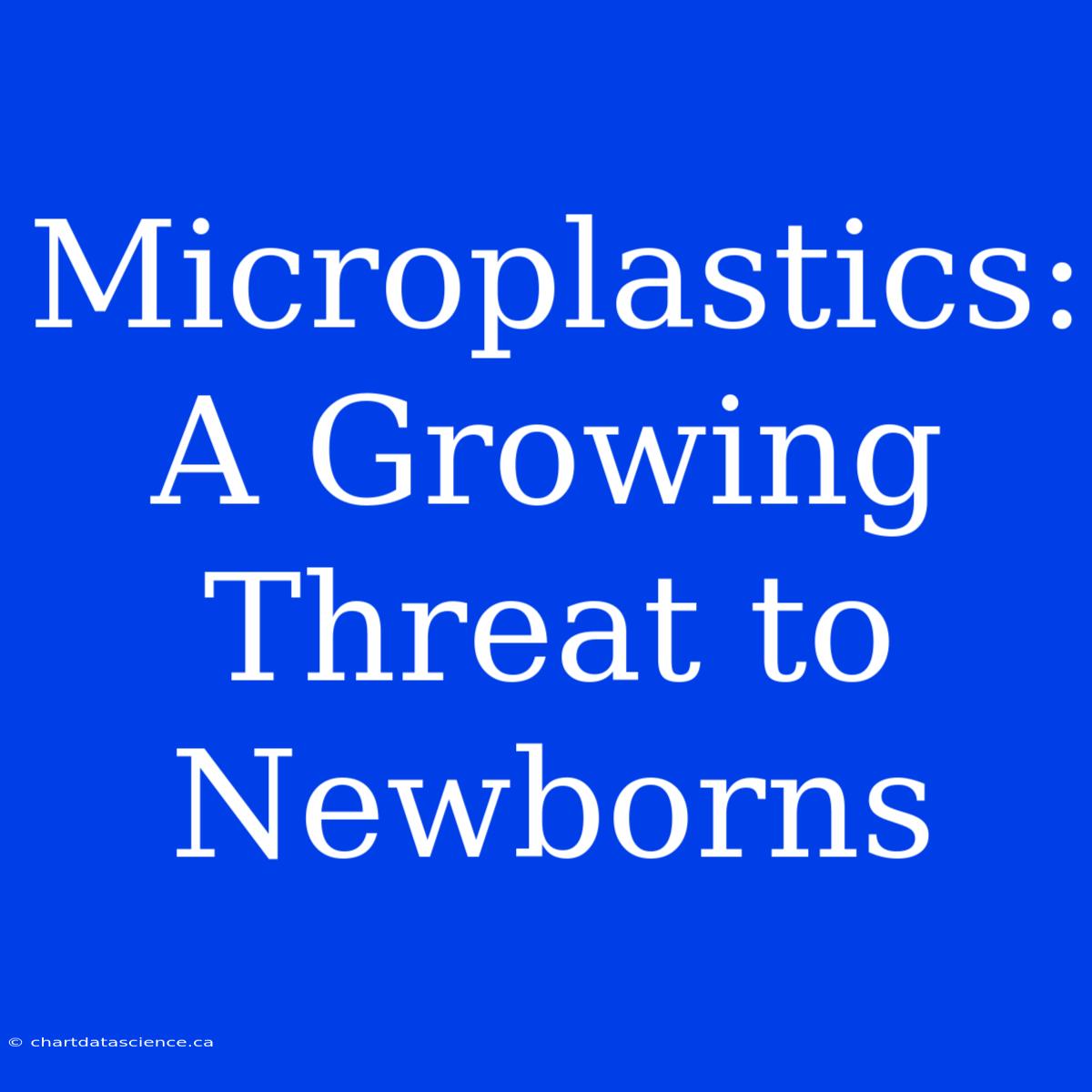Microplastics: A Growing Threat to Newborns
Microplastics, tiny plastic particles smaller than 5 millimeters, are everywhere. They’re in our food, water, and even the air we breathe. But what about our babies? Are they safe from this invisible threat? Unfortunately, the answer is a resounding no. Microplastics are a growing concern for newborn health, and the implications are alarming.
The Silent Invasion: Microplastics in the Womb
Studies have shown that microplastics can cross the placental barrier, meaning they can reach the developing fetus. This raises serious concerns about the potential impact on a baby’s growth and development. While the long-term effects are still being investigated, some studies suggest that exposure to microplastics during pregnancy may be linked to:
- Premature birth: Microplastics might interfere with the normal development of the placenta, potentially leading to preterm labor.
- Low birth weight: Babies exposed to microplastics in utero might have a lower birth weight than their counterparts.
- Developmental delays: There is concern that microplastics could impact brain development, potentially leading to learning disabilities.
Microplastics in Breast Milk: Another Pathway of Exposure
Microplastics have also been found in breast milk, providing another pathway for newborns to be exposed. This discovery is particularly concerning, as breast milk is considered the ideal food for infants. While research is still ongoing, the presence of microplastics in breast milk is a cause for worry and highlights the urgent need for further investigation.
What Can We Do?
It can feel overwhelming to face this invisible threat, but there are steps we can take to minimize exposure to microplastics:
- Choose organic foods: Opting for organic produce and meat can reduce exposure to pesticides and plastic residues.
- Filter your water: Use a water filter to remove microplastics and other contaminants.
- Reduce plastic use: Make conscious efforts to use less plastic, particularly single-use items.
- Support research: Fund and promote research into the health effects of microplastics on newborns.
Conclusion
Microplastics are a pressing concern for newborns, and their presence in the womb and breast milk is a serious matter. It's crucial to raise awareness, prioritize research, and take steps to protect our babies from this invisible threat. By working together, we can create a safer and healthier future for generations to come.

